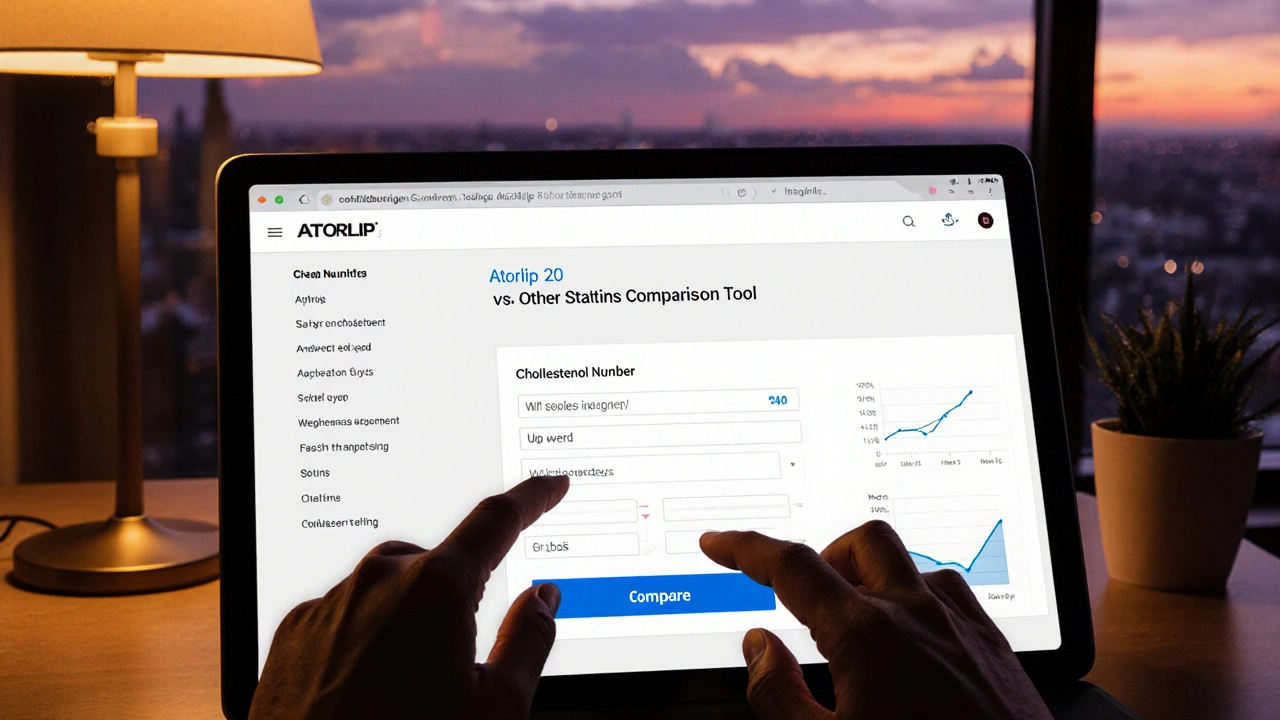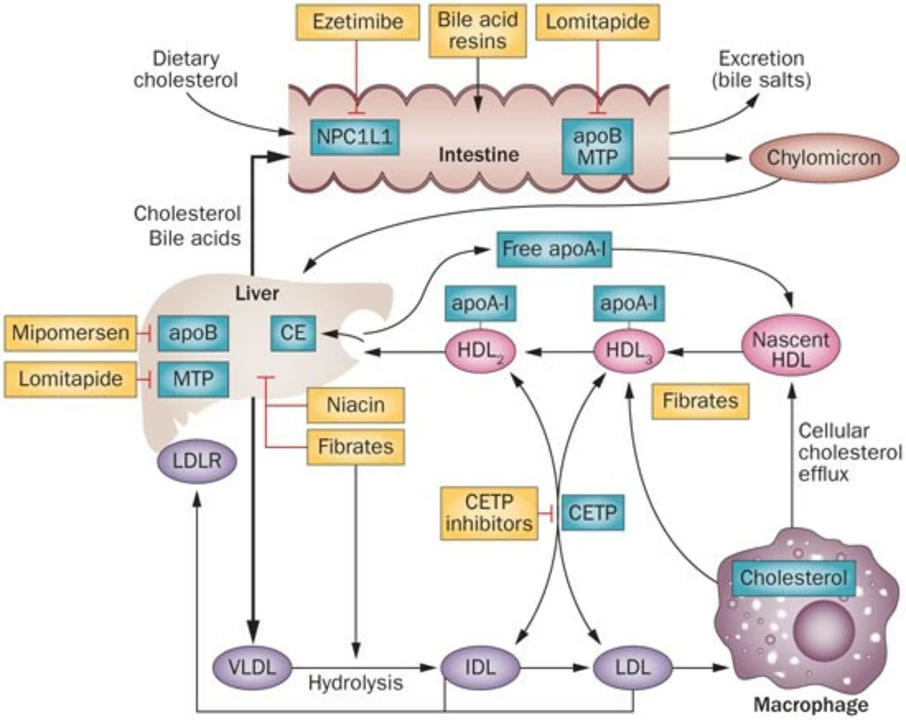Cholesterol Medication Guide – What You Need to Know
If your doctor mentioned a cholesterol medication, you probably have questions. Should you start it right away? Will it cause weird side effects? This guide gives clear answers and practical tips so you can feel confident about the meds that lower LDL and protect your heart.
How Cholesterol Drugs Work
The most common group is statins. They block an enzyme in the liver that makes cholesterol, which drops the bad (LDL) level while often raising good (HDL). Other options include ezetimibe, which stops your gut from absorbing cholesterol, and PCSK9 inhibitors that boost the liver’s ability to clear LDL. Each works a bit differently, but the goal is the same: keep plaque buildup away from arteries.
Choosing the Right Medication
Your doctor will look at your age, heart‑risk factors, and how high your numbers are. For most people with moderate risk, a low‑to‑moderate dose of atorvastatin or rosuvastatin does the trick. If you can’t tolerate statins because of muscle aches, ezetimibe or a PCSK9 shot (like alirocumab) might be better.
Don’t forget lifestyle matters too. Even on meds, eating less saturated fat, exercising weekly, and quitting smoking boost results. Medication isn’t a magic pill; it works best with healthy habits.
Common Side Effects & How to Handle Them
Statins can cause mild muscle soreness or digestive upset. If the pain is severe or you notice dark urine, call your doctor right away—rare but serious muscle damage (rhabdomyolysis) needs attention.
Ezetimibe usually has fewer complaints, but some people get stomach cramps. PCSK9 injections may cause a sore spot where you administer the dose; rotating injection sites helps.
Practical Tips for Safe Use
- Take meds at the same time each day. Most statins work best in the evening because cholesterol production peaks at night.
- Never skip doses without talking to your doctor. Missing several days can raise LDL quickly.
- Ask about drug interactions. Certain antibiotics, antifungals, and grapefruit juice can boost statin levels and increase side‑effect risk.
- Get blood tests regularly. Your doctor will check liver enzymes and cholesterol numbers after starting or changing a dose.
If you’re worried about cost, look for generic versions—they’re much cheaper and work just as well. Many pharmacies also offer discount cards for brand‑name PCSK9 drugs.
When to Talk to Your Doctor
Schedule a check‑in if you notice persistent muscle pain, unexplained weakness, or any new symptoms after starting a cholesterol drug. Also reach out if your recent labs show LDL isn’t dropping as expected; dose adjustments or switching meds might be needed.
Remember, managing cholesterol is a marathon, not a sprint. The right medication combined with everyday healthy choices keeps your heart ticking longer.
Atorlip 20 (Atorvastatin) vs Other Statins: Full Comparison
A side‑by‑side comparison of Atorlip 20 (atorvastatin) with other statins, covering potency, cost, side effects, and when to choose each option.
View moreFrequently Asked Questions About Ezetimibe and Cholesterol Management
As someone who's been researching cholesterol management, I've come across a lot of questions about Ezetimibe. I've learned that this medication is specifically designed to lower cholesterol levels by inhibiting the absorption of cholesterol in the intestines. Many people wonder about its effectiveness and safety, and I can tell you that studies have shown it to be a valuable addition to statin therapy for those who need extra help managing their cholesterol. It's essential to discuss with your doctor whether Ezetimibe is right for you, and to remember that it should be used in conjunction with a healthy diet and exercise. Overall, Ezetimibe can be a helpful tool in the fight against high cholesterol, but it's not a one-size-fits-all solution.
View more

